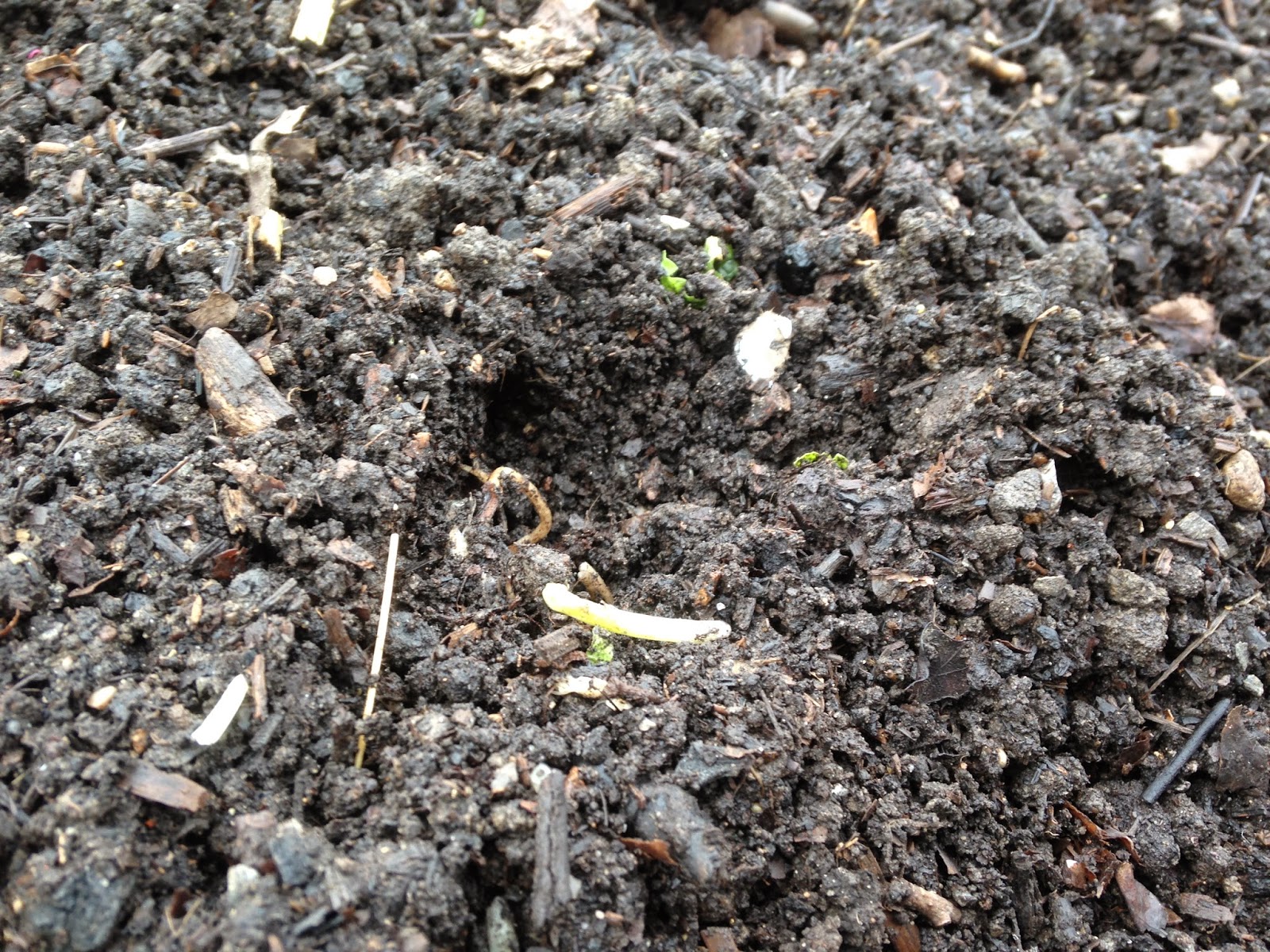....from the field of mice, men and the broad beans of wrath
Time was when we could sow broad beans directly into the soil and witness their glorious springtime emergence. This winter has seen our beans disappear from our raised beds well before that welcome leafy transformation. Where have they gone? Who or what has taken the beans?
Our suspicions lay with the mice because of the precision, thoroughness, and neatness of the excavations. The delicate shell like remains of beans lay on the surface by regimented holes and, occasionally, a dismembered bean sprout or two. The remains have caused grave expressions and vengeful glances towards where the little ones might be hiding. Row upon row has been plundered. How many mice are there that might have caused such consistent damage? If not a plague, then indeed we may be afflicted by a very nasty bout of mice. As our broad beans digest in the plump bellies of satiated field mice other broad beans of wrath are fermenting in the minds of some aggrieved gardeners.
A chorus of flatulent mice has mocked our efforts to re-sow the beans in ways that might prevent repeated decimation. There were moments when I feared I had lost my mind. I heard what I imagined to be countless farts and hiccups emanating from every nook, cranny and niche of our infested and beleaguered allotment site. Of course, I have not actually seen the mice feeding on our broad beans and therefore I imagine, or suppose, the cause of the problem of our disappearing/non appearing/ eviscerated beans is mice. I could take some solace from the collective indigestion of the pests but for the likelihood my bittersweet relish will only tempt the imaginary hoards further into my mind – where there is ample half boiled vegetable matter for them to feast upon; a dicotyledonous mind to be gnawed to pieces.
We are trying to maintain a peaceful ethos in our gardening so advice of setting lethal traps for the mice is not in keeping with that. Other measures to protect the beans include planting them beneath bottle cloches, laying fleece over them (once planted) and sowing them in pots to bring them on in our polytunnel. We may even try soaking the beans overnight in paraffin.
I wonder how the mice find the beans. Do the beans have a scent and perhaps more of a scent when they are germinating? Are our green fingers so exceptionally smelly that our handling of the beans makes the beans easily findable? Is it fanciful to think a germinating bean might make a sound perceptible to the hearing of mice but inaudible to humans? Do the regimented rows of planted beans make the discovery of the second and all subsequent beans much easier? Could our light digging and weeding of the raised beds, in preparation for the bean sowing, make for an all too obvious terrain worth sniffing around on, for that first bean and so on, and for the meaty worms which are unearthed by our digging? If not, mice could it be rats, squirrels or birds raiding the bean beds? I assume the beans are no longer in the beds, but they might have been taken down deeper and gathered by something more mysterious and sinister; a new colony of invasive non-native ants, perhaps, nurturing some sort of alien bean curd to nourish a mind controlling mycelium network to inoculate every vegetable on the plot.
The previous post from the field found me in the guise of a honeybee trying to study the thermoregulation of beehives and their resident honeybee clusters. I made a mistake in trying to enlighten the bees as to a wealth of various national scatological rites available to them. That was a half boiled, or ‘balled’, idea. How can one improve on Utopian societies anyway?
I decided to make a brief excursion as a pseudo-mouse into the allotment field. The excursion was brief because I was very disturbed by what I found. Mice engage in refection; that is the consumption of their own faeces to fully digest their food. Masquerading as an undercover rodent required me to fit in. Their stercoraceous dietary habits reminded me of other excrementitious consumption aimed at achieving altered psychological, or psychic states, in particular the refection of urine from those who have consumed the ‘muk-a-moor’ fungus. The fanciful mousey auditory experiences mentioned earlier took on an unexpected and surprising psycho-tropic dimension – the unintended consequences of sowing broad beans directly into the soil.




Comments
Post a Comment